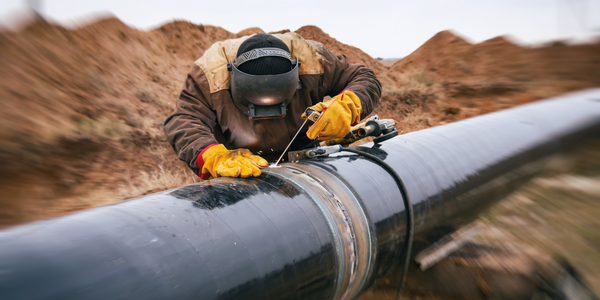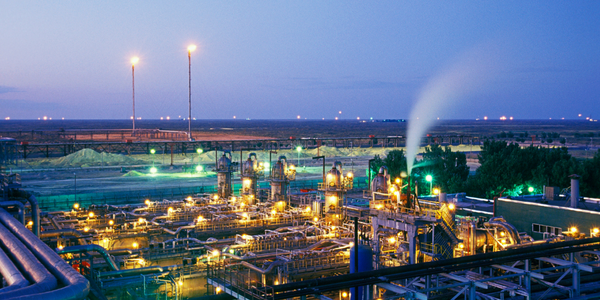Download PDF
Data Analytics for Heavy Equipment: Reducing Gas Turbine Generator Downtime and Failures
Technology Category
- Analytics & Modeling - Machine Learning
- Application Infrastructure & Middleware - Data Visualization
Applicable Industries
- Electrical Grids
- Oil & Gas
Applicable Functions
- Maintenance
Use Cases
- Asset Health Management (AHM)
- Predictive Maintenance
Services
- Data Science Services
- System Integration
The Challenge
Serba Dinamik’s management was seeking to implement an advanced predictive maintenance system that would do more than simply limiting downtime. They needed to provide clients with on-demand visibility into the turbine performance and potential future variances from normal operation. The system needed to detect anomalies and outliers in sensor data that may indicate impending failure of a subcomponent, and provide clear guidance on optimal maintenance scheduling based on planned rig operations and equipment performance. The team set a goal of boosting output for their microturbine power generators by an average of 25%, reducing downtime by 70%, and cutting maintenance expenses by 25%.
About The Customer
Serba Dinamik is a multi-billion-dollar supplier of services and power generation systems to the oil and gas industry. Its gas turbine generators are employed by major exploration and drilling firms such as Petronas, Shell, and ExxonMobil to provide power on offshore oil rigs. These turbines power all critical systems on the rigs, including safety systems and pumps. Their reliability is therefore essential to smooth operations on the rigs. Any failure could result in millions of dollars of losses per day, making it crucial for the equipment to be consistently reliable with no unplanned downtime.
The Solution
Serba Dinamik utilized Altair’s design and simulation software to develop, debug, and manufacture turbines. Altair suggested that the artificial intelligence (AI) and machine learning (ML) capabilities of Altair® Knowledge Studio® and the real-time data visualization capabilities of Altair® Panopticon™ would improve the reliability of turbines mounted on offshore rigs. Serba had access to a large set of performance data for their turbines that enabled them to use the unsupervised ML capabilities of Knowledge Studio to identify patterns, trends, and outliers in the historical performance data and then build AI models that would flag emerging patterns in operational data. Working with engineers from three key hardware vendors plus Altair, the Serba team built and tested an AI model to predict when maintenance tasks are required plus a set of analytical dashboards that enable shore-based personnel to monitor the performance of offshore turbines.
Operational Impact
Quantitative Benefit
Related Case Studies.

Case Study
Taking Oil and Gas Exploration to the Next Level
DownUnder GeoSolutions (DUG) wanted to increase computing performance by 5 to 10 times to improve seismic processing. The solution must build on current architecture software investments without sacrificing existing software and scale computing without scaling IT infrastructure costs.

Case Study
Remote Wellhead Monitoring
Each wellhead was equipped with various sensors and meters that needed to be monitored and controlled from a central HMI, often miles away from the assets in the field. Redundant solar and wind generators were installed at each wellhead to support the electrical needs of the pumpstations, temperature meters, cameras, and cellular modules. In addition to asset management and remote control capabilities, data logging for remote surveillance and alarm notifications was a key demand from the customer. Terra Ferma’s solution needed to be power efficient, reliable, and capable of supporting high-bandwidth data-feeds. They needed a multi-link cellular connection to a central server that sustained reliable and redundant monitoring and control of flow meters, temperature sensors, power supply, and event-logging; including video and image files. This open-standard network needed to interface with the existing SCADA and proprietary network management software.

Case Study
Refinery Saves Over $700,000 with Smart Wireless
One of the largest petroleum refineries in the world is equipped to refine various types of crude oil and manufacture various grades of fuel from motor gasoline to Aviation Turbine Fuel. Due to wear and tear, eight hydrogen valves in each refinery were leaking, and each cost $1800 per ton of hydrogen vented. The plant also had leakage on nearly 30 flare control hydrocarbon valves. The refinery wanted a continuous, online monitoring system that could catch leaks early, minimize hydrogen and hydrocarbon production losses, and improve safety for maintenance.








